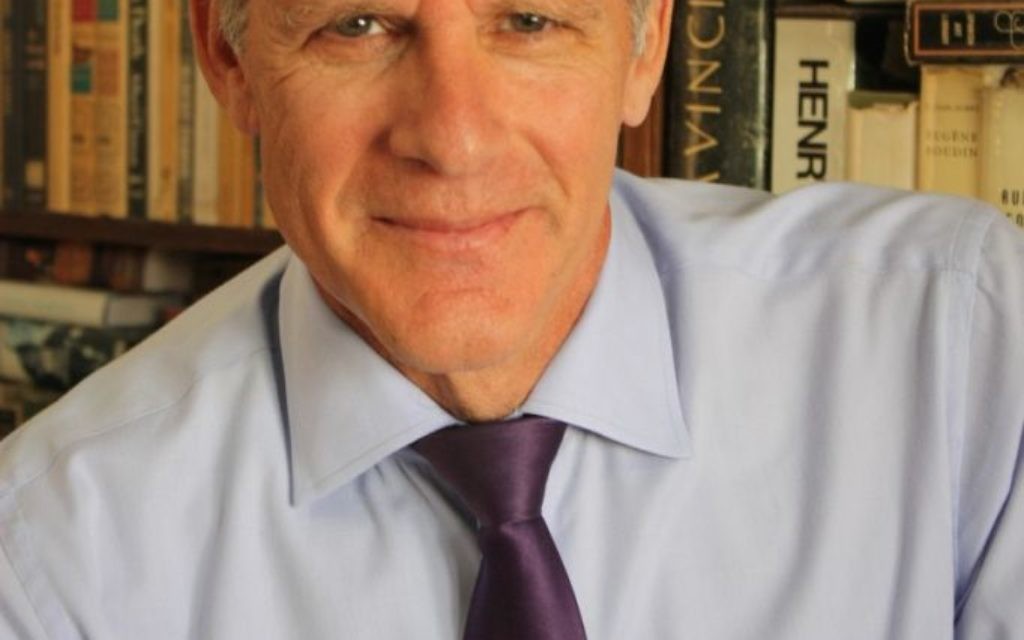Knesset Member: Consulate Should Stay Open
Oren says Israel must deal with reality of Iran deal
The Israeli government might close down its consulate in Atlanta, as well as those in Philadelphia and San Francisco, but it will do so without the support of Michael Oren.
As a member of the Knesset and the government from the new Kulanu party, the American-born former Israeli ambassador to the United States has a voice in the budget decisions that could close the consulate.
Get The AJT Newsletter by email and never miss our top stories Free Sign Up
“I’m not responsible for the decision, but I don’t support the decision,” Oren said in a phone interview Sunday, Sept. 27. He said the consulate fills an important role not only for Atlanta’s Jewish community, but also for the entire Southeast, and based on his diplomatic experience, he wants to keep it open.

Michael Oren says the publication of “Ally” was timed to be part of the debate over the Iran deal.
He also said Atlanta in many ways provides the leadership for the nation’s black community, and the relationship with that community is crucial for the future of Israel as well as for American Jews.
“Israel has to invest heavily in not just our current relationships, but in the future,” Oren said.
Delving into the budget details that can affect diplomacy is among the new experiences for Oren in his first six months in the Knesset.
“It is fascinating,” Oren said. “After so many years in Israel, I thought I knew the country well. … I didn’t know it at all well.”
While many people have an image of Israeli lawmakers shouting at each other in a largely empty Knesset chamber, Oren said “the nitty-gritty of a sovereign state” gets done in the committees across all political, religious and ethnic lines.
But the historian and author deals with a different nitty-gritty in his latest book, “Ally,” about his time as the ambassador to the United States from 2009 to 2013. Oren will talk about the book, as well as Iran and other topics, during an appearance sponsored by the Marcus Jewish Community Center at Atlanta Jewish Academy on Wednesday, Oct. 7. The event is the prologue to the JCC’s Book Festival in November.
Oren makes no secret of the fact that “Ally” was released in June to play a part in the debate over the then-under-negotiation Iran nuclear deal because “it was important to tell our story.”
The book calls into question President Barack Obama’s policies and approaches toward Israel and the Middle East and challenges leaders of the American Jewish community for not confronting the administration. The book also acknowledges Israeli mistakes and takes issue with the methods of Prime Minister Benjamin Netanyahu.
Oren said the book was a commercial success and became part of the Iran deal discussion, but he was disappointed at the vehement responses and personal attacks from the Obama administration and its supporters. He cited attempts to delegitimize the book by claiming he had falsified or hadn’t been present at some conversations, but Oren said every word of his book was vetted seven times by various Israeli agencies.
He also was frustrated that the polarized political environment in the United States prevented his book from fulfilling one of its purposes: to spark an open, civil discussion among American Jews.
Given that the overwhelming majority of Israelis believe that the Iran deal is bad and that the usually divided Knesset was almost unanimous in opposition to the agreement, Israel had to fight the deal, Oren said. Even though the deal has gone into effect anyway and the emotional arguments over the deal exposed and deepened divides within the American Jewish community, Oren said Israel did the right thing.
“Now we have to look forward and explore ways we can defend ourselves in the new reality” of an Iran with hundreds of billions of new dollars to spend on terrorism and on weapons research and with a clear path to a nuclear arsenal in 15 years or less, Oren said.
With $1 billion a year from Iran, Hezbollah has built an arsenal of 100,000 rockets with the capability to strike anywhere in Israel. What happens, Oren asked, if Iran uses its economic windfall to give Hezbollah $4 billion or $10 billion a year?
He said Iran is working on converting Hezbollah’s rockets into precision-guided missiles — the kind Iron Dome can’t defend against. He also said Iran has moved 1,500 troops into Lebanon, forcing Israel to confront the reality of a border just across the Golan Heights with Iran, the world’s biggest state supporter of terrorism and a nation whose leaders repeatedly promise Israel’s destruction.
“For an Israeli, we have to take that seriously and plan accordingly,” Oren said.
—
Who: Knesset member Michael Oren
What: Prologue to Book Festival
Where: Atlanta Jewish Academy, 5200 Northland Drive, Sandy Springs
When: 7:30 p.m. Wednesday, Oct. 7
Tickets: $18 JCC members, $24 nonmembers; www.atlantajcc.org/bookfestival or 678-812-4005
—
Reading Recommendations
Told that his appearance is linked to the Book Festival of the Marcus JCC next month, Michael Oren offered a few recommendations for good English-language books he has read recently:
- Yossi Klein Halevi’s “Like Dreamers,” about the paratroopers who united Jerusalem in the Six-Day War.
- Yehudah Mirsky’s “Rav Kook: Mystic in a Time of Revolution,” a biography of Rabbi Abraham Isaac Kook.
- Daniel Gordis’ “Menachem Begin: The Battle for Israel’s Soul,” about the prime minister who made peace with Egypt.
Oren apologized for not having any suggestions for fiction, but he said his fictional reading has either been in Hebrew or unrelated to Judaism.





comments